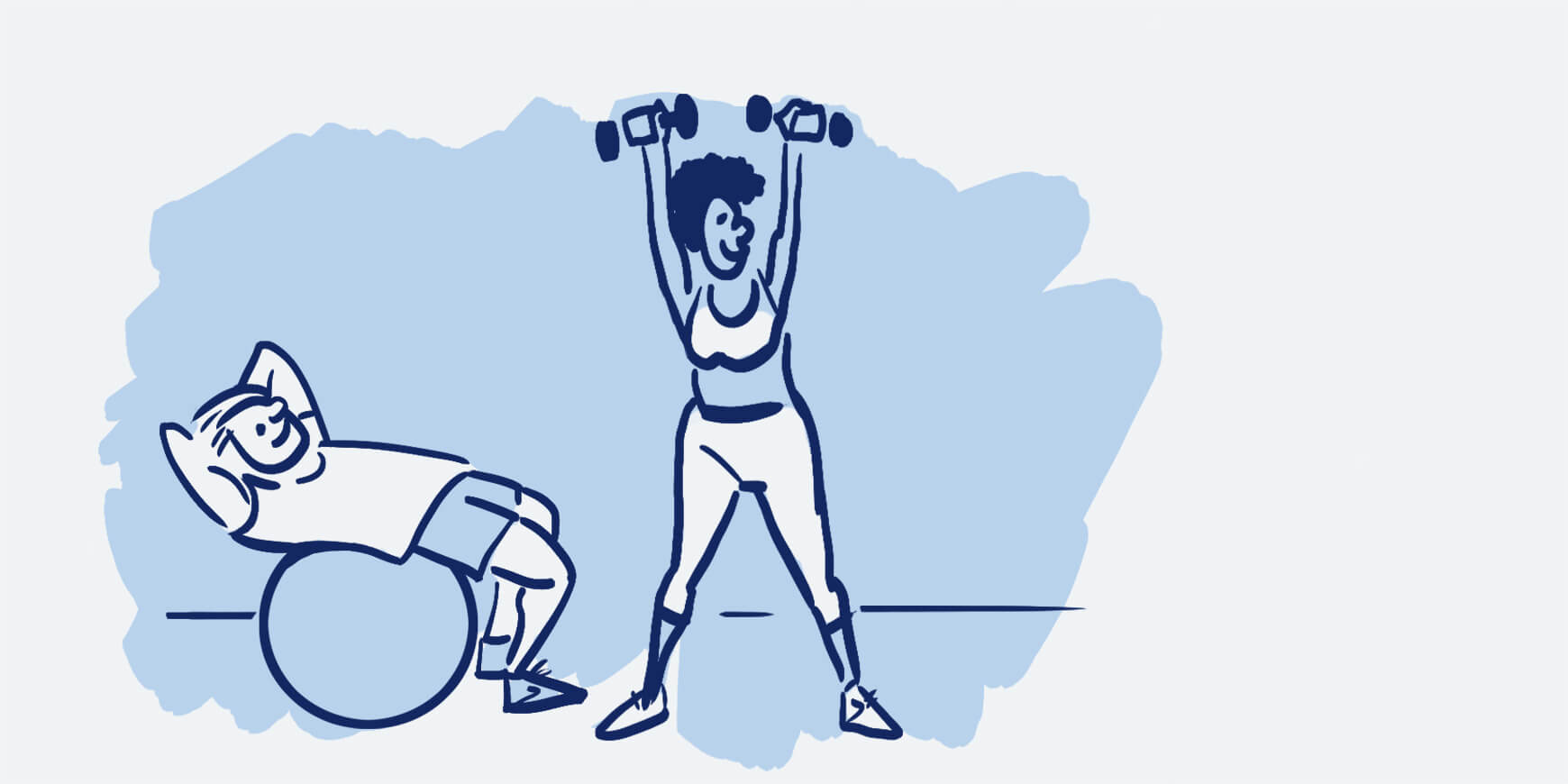You don’t need much to become a competent runner. Consistency and persistence are key — and if we’re being honest, great gear helps, too. To give you a leg up, we’ve put together some pearls of wisdom to help you on your runs.
10 tips to run happy
You’ll learn most of what you need to know by just getting out there and running often, but it doesn’t hurt to have some expert advice in your back pocket. Here are some of our favorite running tips for beginners.

1. Train your whole body
Yes, we primarily run with a specific set of muscles, but it’s a good idea to train your whole body. Muscular imbalances can lead to injury, so consider cross training on non-running days. Throwing in a core or arm workout will help keep your whole body fit and ready to withstand the rigors of running.
2. Take recovery days seriously
Go hard! Just not all the time. Recovery days are essential to keeping you healthy. Every time you run, your body breaks down a tiny bit, so taking a day or two during the week to let your body heal will get you back into high gear on your next run. If you’re the type of person that hates naps or lounging around, go for low-impact activities like yoga or swimming on recovery days.

3. Get a good night’s rest
Stop doom scrolling on your phone and disengage from your 15th binge watch of “The Office.” Good sleep is essential for everyone, but if you’re training hard your body and brain will not be able to function properly without adequate sleep. Aim for at least eight hours of the good stuff.
4. Eat right, run right
A balanced diet of carbohydrates, proteins, and good fats are the fuels you need to power your body properly for your runs. It’s totally acceptable to indulge every now and again but remember to listen to your body while you’re training to find out what’s working and what isn’t. Meal planning is a good way to keep track of what you’re putting into your body in preparation for runs and races.
5. Remember the two-hour rule
To avoid stomach issues that will slow you down, avoid eating big meals or drinking too much within two hours of your run. Try to stock up on carbs and proteins early. Think turkey sandwich rather than fettucine alfredo.
6. Treat your body right with warmups and cool downs
Let your body know you’re about to dig into some serious activity by warming up before your run. Brisk walks, slow jogs, and lots of stretching will do the trick. The same goes for when you’re finished. Do you yank the power chord out of your computer when you’re done using it? No, you know better. Take the same approach with your body.
7. Remember to breathe
Many experienced runners agree that you should be able to speak in full sentences when you run. We’re not advising you to monologue while training — this just means that you should pay attention to your breathing because it’s an important part of stabilizing yourself during your run.

8. Replace your running shoes when it’s time
We know you’re in love with your favorite pair of Brooks running shoes, but even good things don’t last forever. Your shoes have about a 300-500 mile shelf life on them, so when you hit that mark, it’s time to find a new pair to support your run.
9. Be patient
You’ve started running and despite the initial aches and pains that come with using new muscles, you’re invigorated and feel like you’re ready to tackle your first marathon. Like, tomorrow. Hold your horses! Be patient and consistent in your training, otherwise you might end up getting hurt.
10. Ask for help
You may think about running as an individual effort, but it’s really a community sport. Don’t be shy about asking for help from other runners. Get tips on gear, where to go for the best runs, meal plans, and much more.

It’s go time!
Now that you have the tips to help you on the run, get out there and train!




